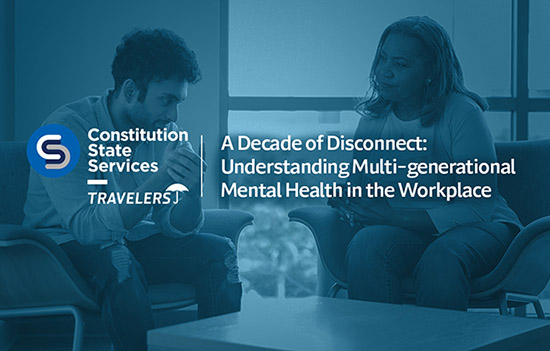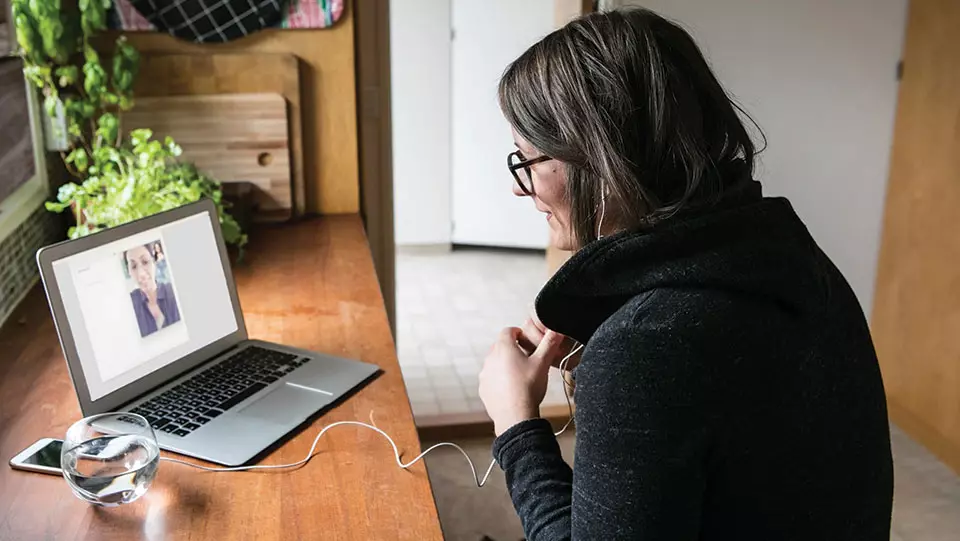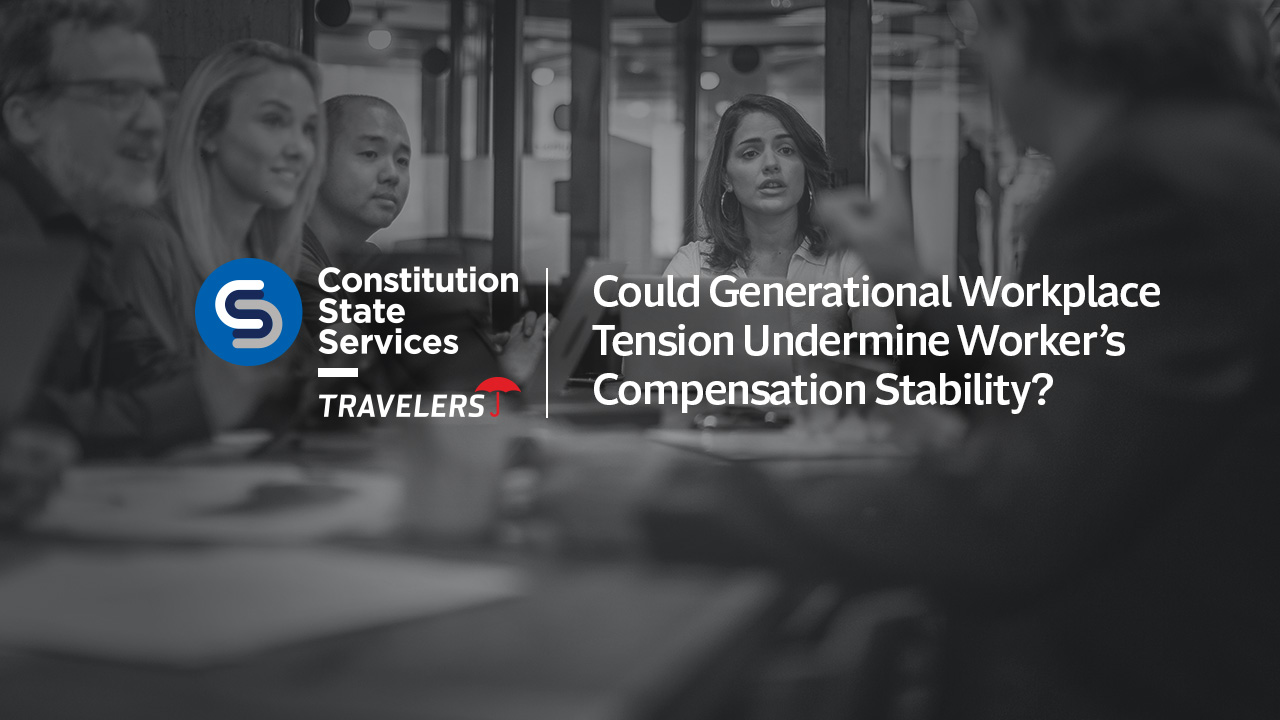How Good Workplace Mental Health Helps Improve Injury Recovery Rates


Mental health is an important part of overall health and well-being. It affects how we think, feel and act. “When we have good mental health, we are able to cope with stress, work productively and enjoy life. When we don’t, these can become a major struggle,” says Marcos Iglesias, M.D., Vice President and Chief Medical Director at Travelers and Constitution State ServicesSM (CSS).
Unfortunately, mental health problems are relatively common. According to the National Institute of Mental Health, more than 1 in 5 U.S. adults experience mental illness each year.1 This affects people’s lives at home and at work. It can also impact family, friends and co-workers. And when it comes to employment, mental health challenges can be a contributing factor to prolonged recovery times and absences after a workplace injury.
“It is important to recognize being mentally healthy is not just the absence of disease. It is a state of complete physical, mental and social well-being,” Dr. Iglesias said. “Mental health is a continuum, not a binary state. This means that there is a range of mental health, from excelling to struggling, and even crisis.” Importantly, not everything on this continuum is a disease. For example, stress is inherent in the human condition and does not always lead to a psychiatric diagnosis.
Mental health factors may delay recovery from workplace injuries
After an employee suffers a workplace injury, they may experience issues that affect their ability to go back to work within normal time frames. But the problems are not always physical. Psychosocial factors – which can have a profound impact on workers compensation claim outcomes2 – could be involved as well. These include general stress and symptoms of anxiety and depression but may also encompass, or be driven by:
- Perceived injustice – Blaming others or circumstances for one’s current condition.
- Fear avoidance – The belief that physical activity may be harmful to one’s recovery.
- Pain catastrophizing – Thoughts that recovery from one’s pain is not possible.
All these factors, alone or combined, can impede recovery by interfering with sleep, appetite and/or pain management. This could play a role in depleting one’s ability to remain resilient in the face of injury, translating into longer recovery times and increased cost. In fact, Travelers has found that 40% of workers who lose time from work have one or more psychosocial risk factors. And injured employees with at least one such risk factor have roughly 50% more indemnity claims.3
Establishing a more effective and comprehensive approach
To address the causes of delayed returns to work, Travelers looked at biopsychosocial research over time and considered how certain behaviors might impact workers compensation. By leveraging our own data, we adopted an approach to help identify people at risk of delayed recovery. Refined over the past decade, this approach considers physical, psychological and social factors affecting health outcomes and has helped injured employees recover faster and more completely.3
“We have shown this approach to be more effective than traditional approaches that focus only on the physical injury,” said Iglesias. “Putting the employee at the center of care decisions can help to ensure that the injured employee is able to recover more quickly and fully than they would otherwise.”
Travelers has learned that engaging at-risk employees at the right time in the right way through the claim process can have a positive effect. Using data to identify psychosocial risk factors, Travelers qualifies and quantifies injured worker interactions with claims management coordinators. This helps employers offer more personalized, supportive roads to recovery.
AI is revolutionizing mental healthcare in return-to-work settings
The quest for further improvements in return-to-work treatments and outcomes never ends, and new technology is supporting this effort. Artificial Intelligence (AI) agents are emerging as powerful tools to address unmet needs in mental health services. In some cases, limited access to traditional therapies may leave an individual without the support they require – which can impact an injured employee’s recovery.
Recognizing the deep connections between mental and physical health, Travelers partnered with Wysa – a leading AI chatbot that supports building resilience – to develop the Wysa for Return-to-Work mental wellness app. The Travelers version of the Wysa app is a groundbreaking AI-powered tool designed to assist injured workers in building crucial mental resilience skills. These skills encompass positive thinking and stress management techniques that are helpful for individuals navigating the challenges of returning to the workplace after an injury.
Significant reductions in lost time days
Early pilot results showed an approximately 20% reduction in lost time days for injured employees with two or more psychosocial risk factors who engaged with the Wysa for Return-to-Work app.4

Our nurse case managers play a pivotal role by introducing the app to injured employees during their initial contact. Notably, app usage is voluntary and anonymous, fostering a sense of privacy and autonomy for users. The app’s effectiveness is further enhanced by nurse-conducted screenings, which aim to identify signs of psychosocial barriers.
Marcos Iglesias, M.D., Vice President and Chief Medical Director at Travelers and Constitution State Services
Creating workplaces that foster mental well-being
When return-to-work strategies focus only on physical recovery, opportunities for faster, more complete recovery may be missed. Organizations that take a more holistic view that includes physical, mental and social factors may experience enhanced results. Beyond clinical efforts, there are additional steps employers can take to create workplaces that foster mental well-being.
- Provide training for managers. Teaching managers how to effectively talk to employees about mental health is essential. This can help break down the stigma around mental health and make it easier for employees to seek and obtain help, according to Iglesias.
- Understand generational differences in mental health. Millennials and Gen Xers reported far lower mental health ratings in 2023 than they did in 2004 and in 2013.5
- Normalize talking about mental health. This can be done by encouraging a culture where employees of all generations feel comfortable talking about their mental health challenges and asking for support.
Risk managers can help build a work environment where the benefits of good mental health are valued. Communications up, down and across their organizations with the support of innovative technology are playing an ever-increasing role, which may help shorten injured worker recovery times, which can lead to lower costs and higher productivity.
To learn more, watch the Travelers and Constitution State Services webinar.
Sources
1 https://www.nimh.nih.gov/health/statistics/mental-illness
2 Chapter #5 Mental Health Impact in Worker Compensation
3 A Biopsychosocial Approach Improves Understanding of Injured Workers
4 Travelers internal claim data, March 2021 - March 2023, where injured employees report 2 or more risk factors.
5 https://www.usatoday.com/story/news/nation/2023/09/14/gen-z-open-about-mental-health/70853469007

Spotlighting workplace risk
Discover how Travelers leverages data for smarter risk mitigation strategies in today's ever-evolving workplace. Join us at RIMS RISKWORLD® Chicago 2025.




